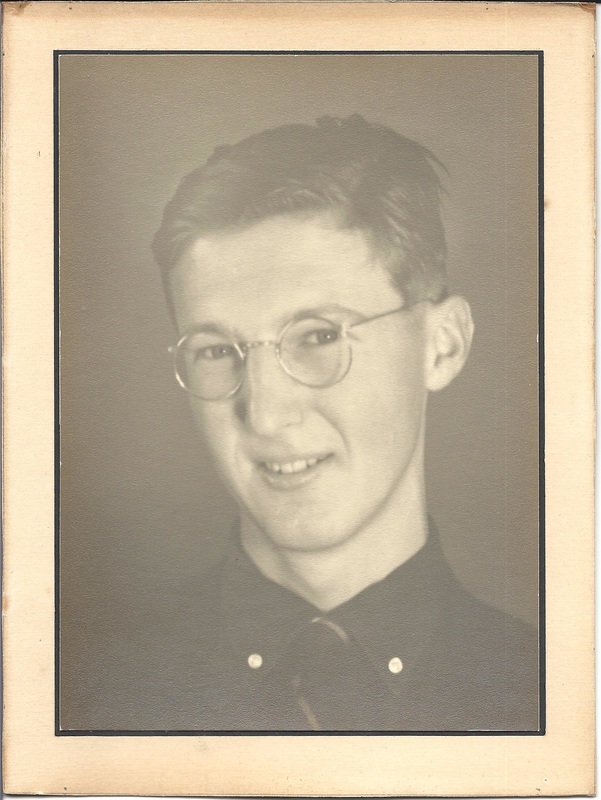|
For today’s blog post, I’ll transcribe a bit more of the tapes my father recorded about his memories. In this portion, he talks about St. Joseph’s Seminary, which he attended from about age 12 to age 15. This would have been about 1934-1937. He says that it had a Mountain View, California address, but it’s in an area now called Cupertino, because it was named after St. Joseph of Cupertino.
I guess there was somewhat of a step streak in my makeup, ad different times, and I’ll tell you some of the stories, perhaps, if I remember them. But down here at S. Joseph’s there was a very small creek that wandered through the campus, and virtually dried up in the summertime, but in the winter and the spring a little more water than that passed through. I surveyed it one time and decided that, gee whiz, I haven’t been swimming for a long time, maybe I could dam it up and make a little pond and go swimming. And so I got some logs and boards and various other things and by the time I was finished I think I had a backed-up reservoir about three-and-a-half or four feet deep, of 30 or 40 or 50 feet long or so, and so I jumped in and had a lot of fun. I don’t think that the management was very pleased when they discovered what I had done. Also along the creek bed there, in a little glen, there was a little clearing and one of our students earned some of his expenses by being the school barber. Victor D’Arcangelo would take his clippers and his cape and a stool and, about once a month or every five or six weeks each of the kids would go down there and he’d cut is hair for, I don’t know whether it was 25 cents or 50 cents, but it helped him out and it was a necessary job for somebody. On Thursdays that we got to leave the campus, we could go for a walk. Thursday was our day off and about half the student body, each Thursday could go for a walk from one o’clock until 4:40, right after lunch. And wed walk out a country road, right in the back of the campus toward the foothills And out on that road, about two, two-and-a-half miles there was a… oh…. What would be the equivalent now of a mini-mart. And that’s where most of the young boys at the seminary got their first tasted of tobacco. They’d buy a package of cigarettes for whatever the price was, all 20 of them, and probably by the time they got back to the campus in two or three hours they had smoked all 18 or 20 of them. But not far from that mini-mart, there was also a side road and country saloon. And our president one day made the announcement to everyone that he was aware that students had been going to that saloon and he’s saying right now it is off limits to everyone. Do not go there anymore. And I think this was about May, and by golly, that afternoon two of the graduating rhetoricians went down there and before that evening was over their parents had been called on the phone, saying come and get your son, he’s expelled. It made it quite a shock to all of us, but I think it was probably the proper thing to do. Each evening, we’d assemble after refectory for the rosary and recite five decades, and then Father Fenny, Lyman Fenn was the president of the school, and he would give a 15- or 20-minute homily about how to… about various subjects. He had a lot of subjects over this entire school year, but his major theme… he seemed always to come back to the words “fraternal charity” – that’s what you’re in business for, that what everybody is in business for and we have to be considerate of our neighbor, our fellow man, and this other fraternal charity is the theme of your education. I think that kind of stuck with me, at least I… a lot of it became part of… part of my thinking. Of all the people in my life, those years from 12 until 15, the most influential person that I had, other than my parents was Father Fenn. He was an admirable man, and I think a lot of the seminarians would tell you that, too. As I begin a new year as volunteer treasurer for an organization in Seattle, I appreciate the example of someone like Father Fenn who was an example for my father. Pay it forward.
0 Comments
Your comment will be posted after it is approved.
Leave a Reply. |
AuthorMary Kircher Roddy is a genealogist, writer and lecturer, always looking for the story. Her blog is a combination of the stories she has found and the tools she used to find them. Archives
April 2021
Categories
All
|

